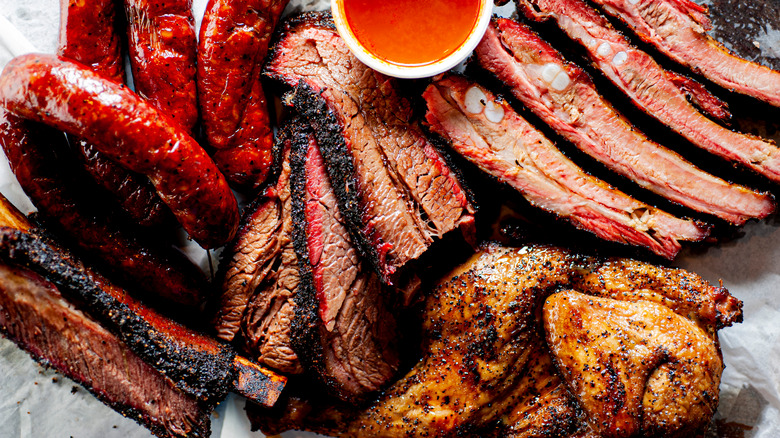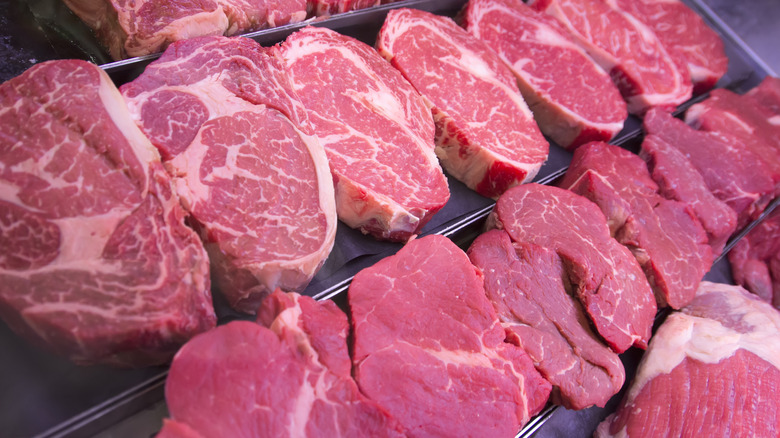Here's Why The Term 'Meat Sweats' Can Be Misleading
For all those true carnivores out there, planning a night out at a steakhouse – or better yet a Brazilian Steakhouse – can be a rapturous experience. If you're unfamiliar with the concept, a traditional Brazilian steakhouse typically involves paying a fixed price that gives you unlimited, all-you-can-eat access to different mouth-watering cuts of meat such as beef, lamb, pork, and chicken (via Boi Na Braza). Of course, mouths might not be the only things that start watering, according to some people.
While gorging on a never-ending pile of steak may sound tantalizing to some, it's enough to make you wonder whether the experience would give you the so-called meat sweats. There are accounts of people indulging in meat who allegedly start to sweat profusely, and then the assumption becomes that the consumption of said meat caused this sweating. A Redditor who recalled catching a flight an hour after visiting a Brazilian steakhouse said they had "meat sweats at 30,000ft, but the meal was to die for." But does a claim like this have any basis in truth? Well, as it turns out, the term "meat sweats" might be a little misleading.
The 'meat sweats' are really the 'protein sweats'
In an email to USA Today, registered dietician Julia Zumpano said that there isn't scientific research to support that meat sweats are an actual thing. However, there is evidence showing that thermogenesis, the production of heat in humans or animals, increases with a higher protein intake because proteins take longer for the body to break down than, say, fats or carbohydrates (via Healthline). And there's at least some evidence that animal protein takes longer to digest than plant-based proteins. As Texas A&M biochemistry grad student Keya Mukherjee explained to Live Science, "Proteins are extremely complex molecules and require a lot more energy ... to metabolize." Meat also tends to be tougher to chew, meaning even more energy is needed to eat it.
But while consuming a lot of meat in one sitting – as you might at a Brazilian steakhouse – could cause a person to heat up and maybe even sweat, consuming any food creates some level of thermogenesis. And as noted by dietitian Natalie Rizzo, if meat sweats are a thing, then eating a large amount of high-protein dairy should have a similar effect, per Bon Appétit. So why don't people talk the same way about "cheese sweats," as one Twitter observed? While not backed by science, what is true is that the phrase "meat sweats" has become an ingrained part of our cultural lexicon.

